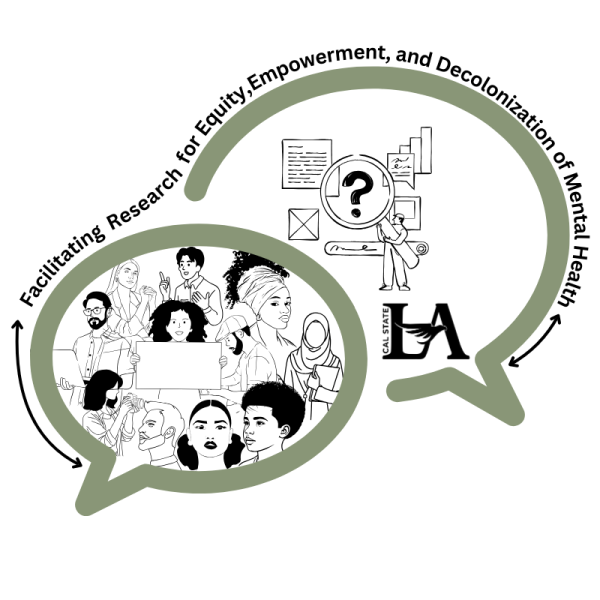Current Studies
Critical Consciousness & Sociopolitical Determinants of Mental Health
PURPOSE OF STUDY
This study will look at a diverse group of young adults from different racial/ethnic backgrounds, to understand how their experiences with structural violence, as well as their levels of critical consciousness and political development, are related to mental health. Critical consciousness refers to having an awareness and understanding of the world, specifically in terms of understanding oppression and the roots of oppression, as well as the commitment to use that knowledge to then transform the world, in pursuit of equity and social justice.
This mixed-methods study comprises two components: (1) an online survey of 800 people of color between the ages of 18 and 30 years old, residing in Los Angeles County and (2) individual interviews with 60 participants who had completed the survey.
This study builds on existing literature by examining the relationship between experiences of oppression, critical consciousness, and mental health outcomes among young adults of color in one of the most racially and economically diverse regions in the country, Los Angeles County. We aim to answer the following primary research questions:
RQ1: How are sociopolitical determinants – such as discrimination, systemic oppression, and internalized oppression – associated with mental health (i.e., anxiety, depression, substance use, post-traumatic stress)?
RQ 2: How do critical consciousness and political development relate to mental health?
RQ 3: How do experiences of oppression relate to the development of critical consciousness?
RQ 4: What are young adults’ attitudes towards collective processing spaces, compared to traditional individual mental health treatment?
STUDY STATUS
This study is in the active data collection phase, with data collection beginning in January 2026. Students joining the lab will be expected to contribute to data analysis for this project and will have the opportunity to conduct independent projects using these data.
The Impact of Multiple Minority Identities on Mental Health: Muslim American Young Adult Survey Follow-Up
PURPOSE OF STUDY
This study is a longitudinal follow-up study to a survey study of Muslim American 18-25 year olds, originally conducted at the University of California, Los Angeles in 2020 (see "Past Studies" below for details on original study). The goal of the study is to examine how mental health and determinants of mental health have changed over time, as well as to better understand mediators and causes of mental health for this population. This study measures many of the same key variables of the Time 1 study, but expands to better understand sociopolitical development and critical consciousness as a determinant of mental health.
Primary research questions include:
RQ 1: How do mental health symptoms and determinants of mental health change over time?
RQ 2: How do sociopolitical determinants – such as discrimination, systemic oppression, internalized oppression, and critical consciousness – influence mental health?
RQ 3: Do codeswitching and sense of belonging mediate the relationship between discrimination and mental health?
RQ4: What are attitudes towards collective processing spaces, to inform future collective community-based mental health interventions?
STUDY STATUS
This study completed data collection in January 2026 (data were collected in Fall 2025). Students joining the lab will be expected to contribute to data analysis for this project and will have the opportunity to conduct independent projects using these data.
Past Studies
The Implications of Multiple Minority Identities on Muslim American Mental Health
The primary study of the lab currently focuses on the implications of having multiple marginalized identities on Muslim American mental health.
PURPOSE OF STUDY
Mental health research among individuals belonging to minority groups has become increasingly common, as people belonging to these groups face increased vulnerability for mental health problems and barriers to accessing mental health services. However, the research has primarily focused on individuals holding single minority status (i.e., belonging to just one minority group). Limited research has begun to examine mental health among individuals with dual minority status (i.e., belonging to two minority groups), despite the fact that individuals with multiple marginalized identities are likely at even greater risk for mental health challenges and barriers to help-seeking, given the increased experiences of minority stress they may experience. Thus, greater research is needed to better understand mental health needs and factors that influence mental health for individuals with multiple minority status.
Most Muslim Americans hold multiple marginalized identities, as both religious and ethnic minorities. Given the position of Muslims in the United States, studying this community offers a unique opportunity to understand how having multiple marginalized identities relates to mental health and mental health service-seeking.
STUDY DETAILS
Part 1: Muslim American Young Adult Survey
A survey of over 300 participants across the country was conducted. Data collected includes participant demographics, level of identification with different identity groups (specifically their racial/ethnic group and their religious group), level of “Muslim prototypicality” (i.e., how “visibly Muslim” do they appear?), experiences of direct discrimination, perceptions of state- and nation-level discrimination, sense of belonging in different contexts, mental health symptoms (anxiety, depression, traumatic stress, and substance use), perceived impact of COVID-19 and 2020 racial violence on mental health, past experiences with mental health counseling, where they would seek mental health support if needed, barriers to help-seeking for mental health, and cultural code-switching (e.g., having to “switch” between ethnic, Muslim, and American identities).
Part 2: Focus Groups with Southern California Community Stakeholders
6 focus groups of Muslim mental health professionals, community leaders, and young adults in Southern California were conducted. The focus groups addressed the following topics: the perceived mental health needs of Muslim young adults, the perceived determinants of mental health (i.e., what factors contribute to mental health problems), the role of culture and religion in mental health, and barriers and facilitators of mental health service-seeking.
STUDY STATUS
Data collection has been completed, and the study is currently in the data analysis phase.

